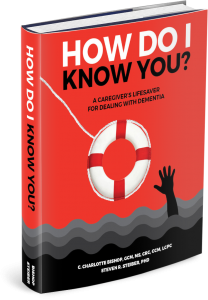 For a very long time scientists have told us that there are no cures for Alzheimer’s Disease and that even the approved medications do very little to slow the progression of the disease. But researchers at the University of Copenhagen, Denmark, are onto what they suspect may be a preventive measure. It’s lithium.
For a very long time scientists have told us that there are no cures for Alzheimer’s Disease and that even the approved medications do very little to slow the progression of the disease. But researchers at the University of Copenhagen, Denmark, are onto what they suspect may be a preventive measure. It’s lithium.
Lithium is the lightest of the metals among the elements, and you may have seen it as a component of some of the longer-lasting batteries, but for dementia? Well, it actually has been used historically to treat the manic episodes of bipolar disorder, but it can have side effects and it is dosed in extremely small quantities – micrograms. Yet, some new research holds promise for treating Alzheimer’s disease.
Animal studies reported by scientists have shown that Lithium has neuroprotective qualities that improve learning and memory. In humans, observational studies suggest that it could be beneficial in slowing the progression of dementia in patients with bipolar disorder. The Danish researchers collected data on more than 800,000 citizens going back to 1986. About one in ten of these people had been diagnosed with dementia since 1986 and the rest were the “control” group. They examined “naturally occurring” levels of lithium in drinking water across geographic residences of the study subjects. Since most of the study subjects did not move around over their lifetimes, this worked reasonably well. Their conclusion was statistically clear. Individuals with the higher levels of lithium in their natural drinking water were simply less likely to develop dementia that those with lower levels.
Some observers are already making comparisons to the fluoride that has been added to public water for generations in order to prevent dental caries. Could this be another “easy fix” as well? While the results of these early efforts are statistically compelling, a bit more research is encouraged to be sure that it is not something else entirely that is making the difference for the Danish subjects or if Lithium just happens to be in the right water at the right time.
We will keep you posted. And we also will need to keep this and subsequent studies in mind for a second edition of our recent book, How Do I Know You? A Caregiver’s Lifesaver for Dealing with Dementia. Please check it out, and please also be so kind as to review it for Amazon and for us. In the book, we cover what we know about dementia, what can be done to stave off the effects of dementia and most importantly what caregivers can do for their loved ones with dementia and for themselves. We also offer a lot of resources, many of them accessible on-line.
Charlotte Bishop is a Geriatric Care Manager and founder of Creative Care Management, certified professionals who are geriatric advocates, resources, counselors and friends to older adults and their families in metropolitan Chicago.





